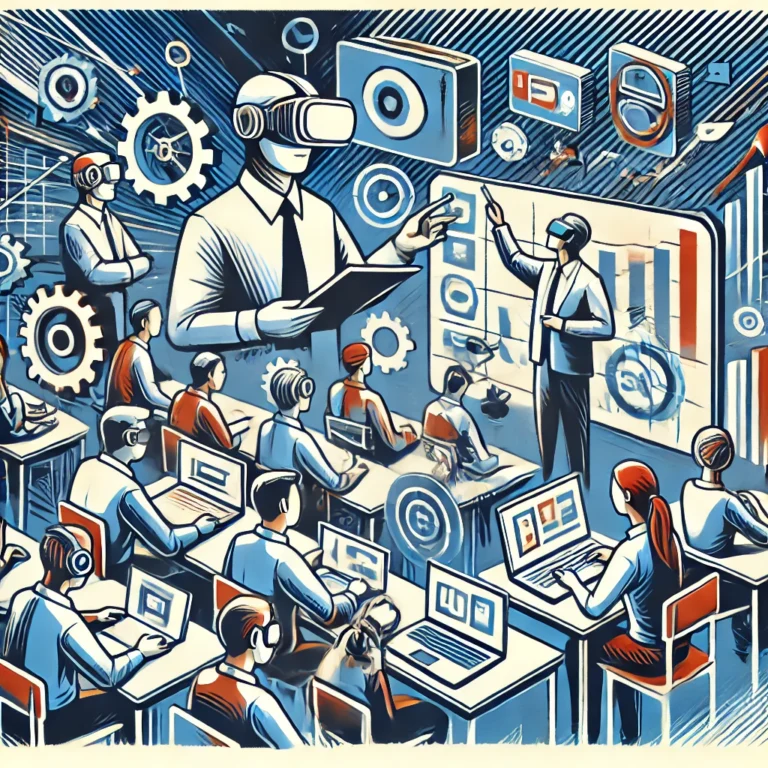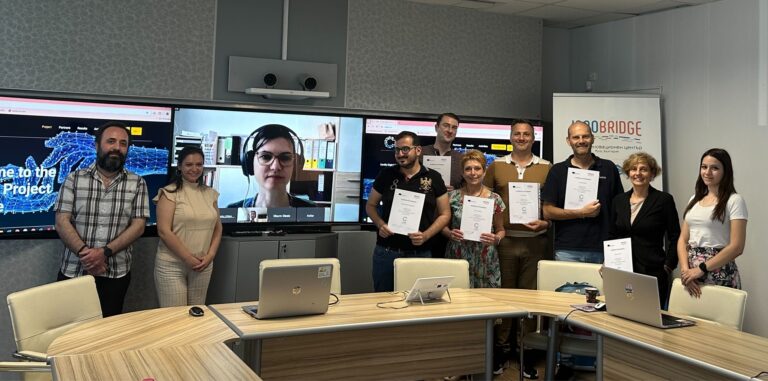The digital transformation in vocational education and training (VET) is reshaping how we prepare future professionals. This transformation is not just about integrating new technologies into the classroom, but also about ensuring that the skills developed meet the evolving demands of employers. In today’s rapidly changing digital landscape, the role of vocational education is becoming increasingly critical in bridging the gap between the educational supply and the needs of the labour market.
Employers are, after all, the primary clients of vocational education, and their needs should be at the forefront of educational reform. However, these needs are not always clear-cut, especially when considering the competencies required for working in a digital environment. The rate of digital advancement varies significantly between industries and even among companies within the same sector. As a result, the skills required by employers can differ greatly, leading to a complex landscape that vocational education must navigate to stay relevant. (Pulkkinen, 2023.)
One of the significant challenges highlighted by employers is the necessity for workers who can not only operate but also understand and integrate new technologies, such as artificial intelligence and mechatronics systems, into their work. This demand underscores the importance of critical thinking and analytical skills, which are becoming as crucial as technical know-how. However, an analysis of the European experience in training qualified workers shows that domestic vocational institutions often lag in providing the necessary digital tools and education to meet these demands. (Kovalchuk et al., 2022.)
Moreover, the digital transformation of vocational education is seen as a critical response to the global information challenges that are reshaping industries worldwide. This transformation involves more than just technological upgrades; it requires a fundamental shift in how education is delivered and how skills are developed (Anisimova & Efremova, 2022). For instance, vocational education should focus on equipping students with the ability to monitor industry trends and technological advancements, distinguish essential information, and apply it effectively in their professional roles (Paananen et al., 2023).
Employers also emphasize the need for vocational graduates who can manage change and adapt to new working environments. This adaptability is crucial as workplaces become more dynamic and reliant on technology. Furthermore, vocational education must instill in students the ability to lead their well-being and resilience amidst continuous technological changes. (Paananen et al., 2023.)
To meet these challenges, vocational education must evolve. There is a growing need for educational content that enhances self-confidence, internal entrepreneurship, self-direction, and life management skills—especially as compulsory education extends, and more students enter vocational training without these foundational skills. Additionally, basic digital competencies, such as online participation, remote work, and digital collaboration, should be integral to all vocational programs. (Paananen et al., 2023.)
In conclusion, the digital transformation of vocational education is not just an educational imperative but an economic one. As the nature of work continues to change, so too must the training that prepares workers for it. By aligning more closely with the needs of employers and anticipating future industry trends, vocational education can ensure that its graduates are not just participants in the digital economy but leaders in it.
References:
Anisimova, A. N., & Efremova, Y. I. (2022). Digital transformation of vocational education: Challenges of modern society. In Digital Technologies in the New Socio-Economic Reality (pp. 773-781). Springer International Publishing.
Kovalchuk, V. I., Maslich, S. V., Movchan, L. G., Soroka, V. V., Lytvynova, S. H., & Kuzminska, O. H. (2022, March). Digital transformation of vocational schools: Problem analysis. In CTE Workshop Proceedings (Vol. 9, pp. 107-123).
Paananen, H., Taivassalo, M., Raitanen, T., & Nieminen, A. P. (2023). Digitaalinen osaaminen ammatillisessa koulutuksessa – opas osaamisen sanoittamiseen. (Digital competence in vocational education – A guide for articulating competencies). Finnish National Agency for Education, guides and manuals 2023:1.
Pulkkinen, P. (2023). Ammatillisen koulutuksen digitalisaatio työnantajanäkökulmasta: kirjallisuuskartoitus. (Digitalization of vocational education from the employer’s perspective: A literature review). Master’s Thesis in Educational Technology, Faculty of Information Technology. University of Jyväskylä.




